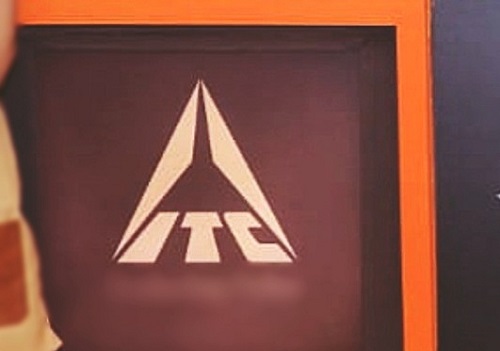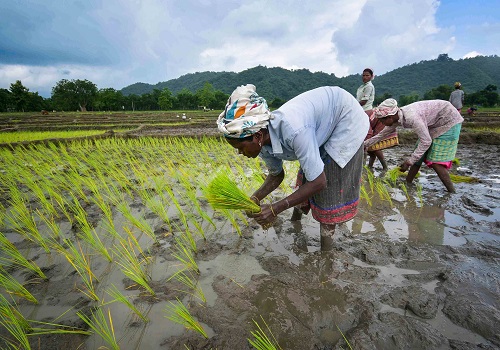ITC focuses on ITCMAARS, climate smart solutions & value addition to promote next generation agriculture

In line with its commitment to harness the power of cutting-edge digital technologies and unlock the potential of India's farmers, ITC had launched ITCMAARS (Metamarket for Advanced Agriculture and Rural Services).
This 'phygital' ecosystem will empower the farming community and FPOs by delivering hyperlocal and personalised solutions by synergistically integrating NextGen agri-technologies.
Towards enhancing the competitiveness of domestic agri-value chains, strengthening market linkages and further augmenting value creation opportunities, ITC has successfully scaled up ITCMAARS - a crop-agnostic full stack AgriTech platform, together with a 'phygital' ecosystem across nine states.
Over 1,150 Farmer Producer Organisations (FPOs) encompassing more than 5,00,000 farmers have been added to ITC's network within a short period since launch.
By synergistically integrating NextGen agri technologies, this initiative is creating a robust ecosystem to seamlessly deliver hyperlocal and personalised solutions to the farming community, whilst creating new and scalable revenue streams, strengthening sourcing efficiencies and powering ITC's world-class Indian brands.
These include an e-marketplace for agri inputs and farm outputs, wide range of advisory services covering weather forecasts, agronomy, best practices for improved productivity, quality assurance, etc. The business expects to rapidly scale up the initiative to create a unique platform providing significant competitive advantage to ITC's Agri Business as also creating new revenue streams.
ITC remains focused on developing climate smart agriculture systems which address the environmental and social impacts of climate change, enhance the resilience of agri-value chains, enable higher productivity and boost farmer incomes whilst also reducing emissions.
The Climate Smart Agriculture programme attempts to de-risk farmers from erratic weather events through the promotion and adaptation of climate-smart agriculture premised on dissemination of relevant package of practices, adoption of appropriate mechanisation and provision of institutional services. Currently, 23.4 lakh acres and over 7.4 lakh farmers are covered under the programme, representing an increase of 54 per cent and 64 per cent respectively over previous year.
To provide additional support to farmers in dealing with climate risks, 9.5 lakh linkages were facilitated for farmers with six major government schemes.
In this context, ITC's interventions in collaboration with CGIAR's 'Climate Change and Food Security Programme' to build climate smart villages were expanded to over 4,800 villages across 11 states covering 10 lakh acres and supported farmers in the management of risks arising from erratic and extreme weather events.
Further, according to CGIAR's estimates, ITC's Climate Smart Village intervention in Madhya Pradesh demonstrated average increase in yield of 38 per cent and 15 per cent in soyabean and wheat respectively, over the baseline.
Reduction in cost of cultivation along with yield improvement led to an increase in net income by 93 per cent in soyabean and 46 per cent in wheat over the baseline and average Green House Gas emissions reduced by 66 per cent for soyabean and 13 per cent for wheat as compared to the baseline.
The scope and scale of operations of ITC's Agri Business have grown manifold over the years and currently encompass over 4.5 million tonnes of annual volume throughput in 22 states and over 20 agri-value chains.
The strategic focus of the business in recent years has been to accelerate growth by rapidly developing and scaling up VAAP straddling multiple value chains comprising spices, coffee, frozen marine products and processed fruits among others.
The portfolio continues to be rapidly scaled up, leveraging ITC's deep rural linkages and extensive sourcing expertise enabling traceable, attribute based and identity-preserved sourcing of agri-commodities, besides value addition through processing.
ITC is a leading player in whole spices such as chilli, turmeric, coriander and cumin. In line with its strategy of enhancing value addition and 'producing the buy', the business has, in recent years, scaled up its presence in 'food safe' markets viz. US, EU and Japan, leveraging its key strengths such as identity-preserved sourcing expertise, strong backward integration, custody of supply chain and customer focused strategies.
The business scaled up its Integrated Crop Management (ICM) programme, thereby enhancing its ability to produce food safe spices in a sustainable manner.
In this context, during the year, ITC has commissioned a world-class, state-of-the-art spices processing facility in Andhra Pradesh. This facility, compliant with Global Food Safety standards, will enable ITC in expanding its customer base in food safe export markets, besides promoting inclusive spices value chains benefiting thousands of Indian farmers.
The business is also scaling up its customised crop development programme in Madhya Pradesh to build deeper expertise in Medicinal and Aromatic Plant Extracts (MAPE). Collaborations with farmers are underway with the business providing necessary inputs, advisory and on-field support. The business is also focusing on developing unique value-added products by leveraging the research platforms of ITC's Life Sciences and Technology Centre.










